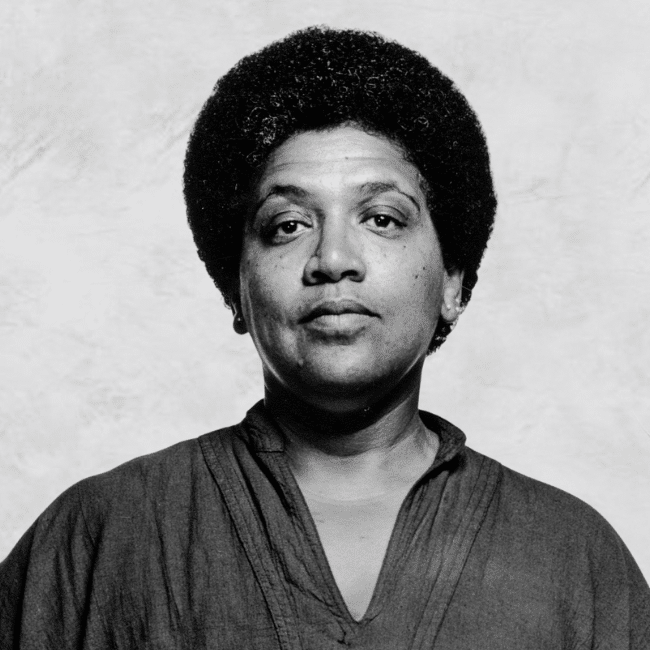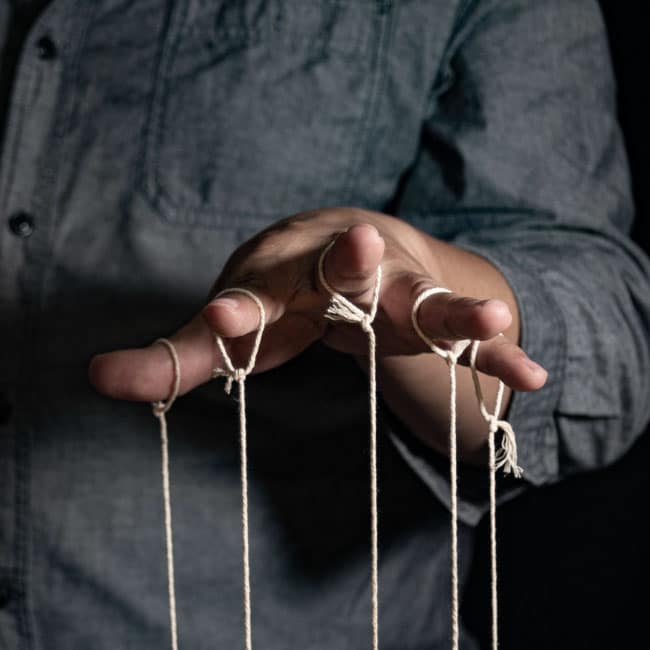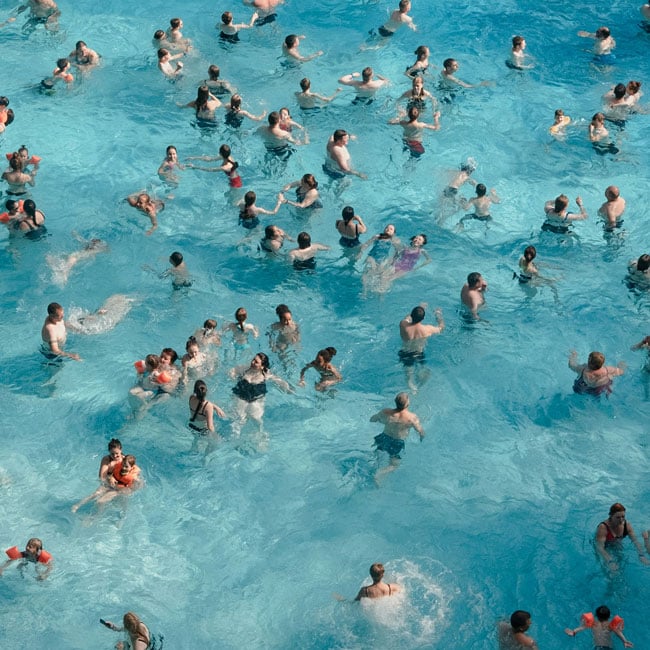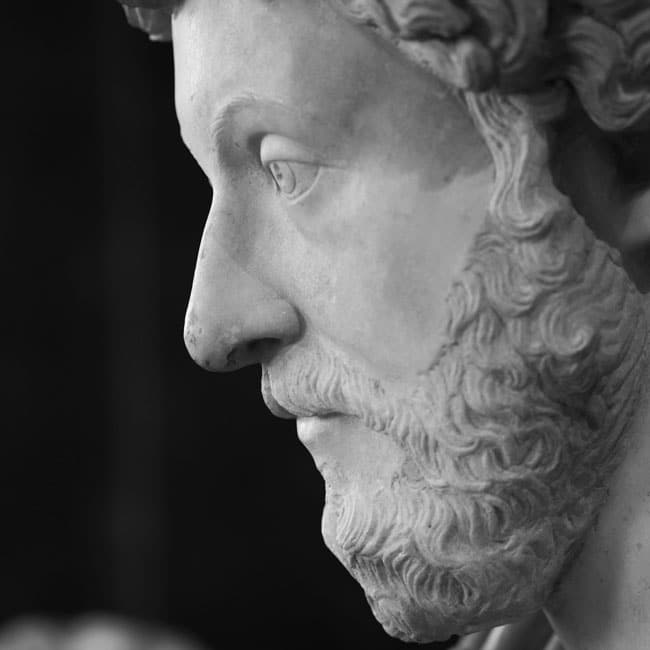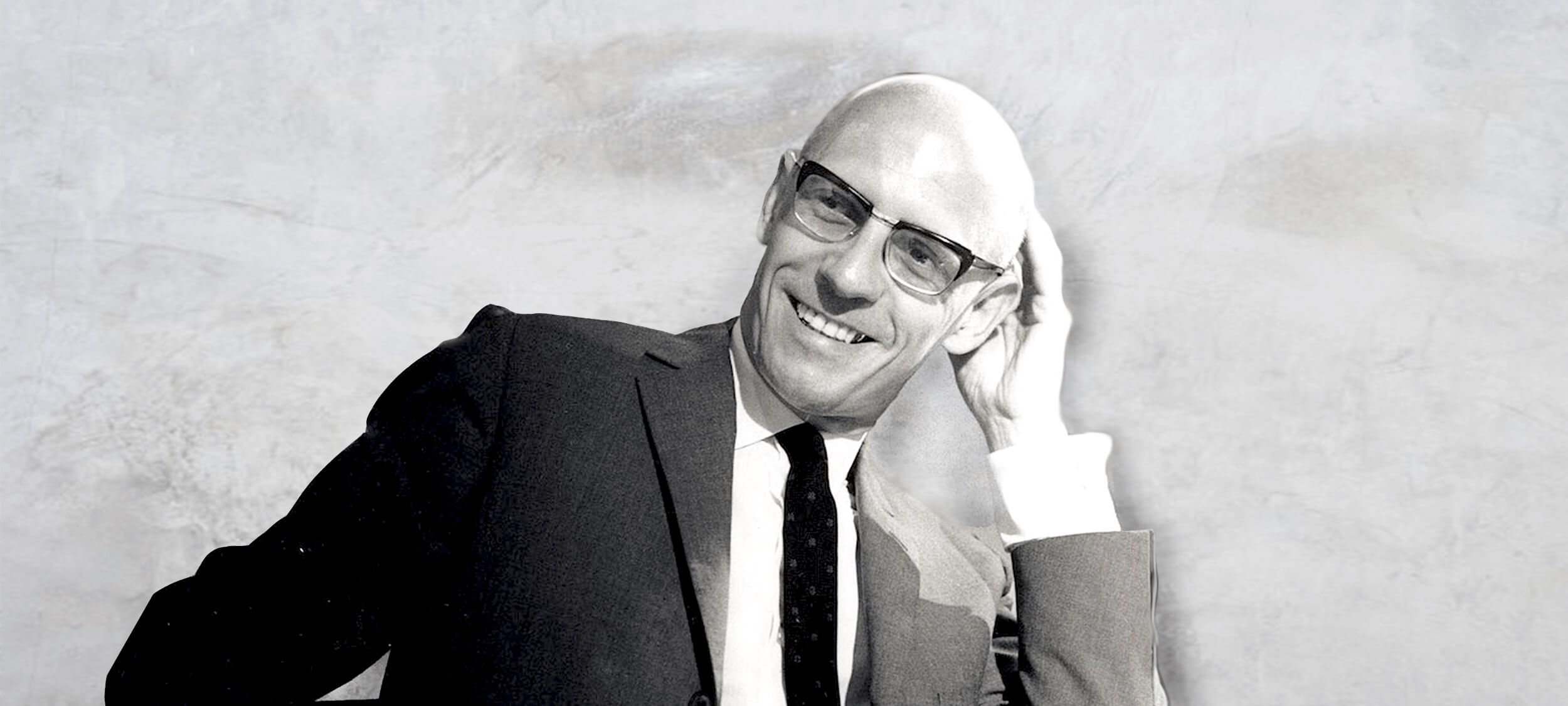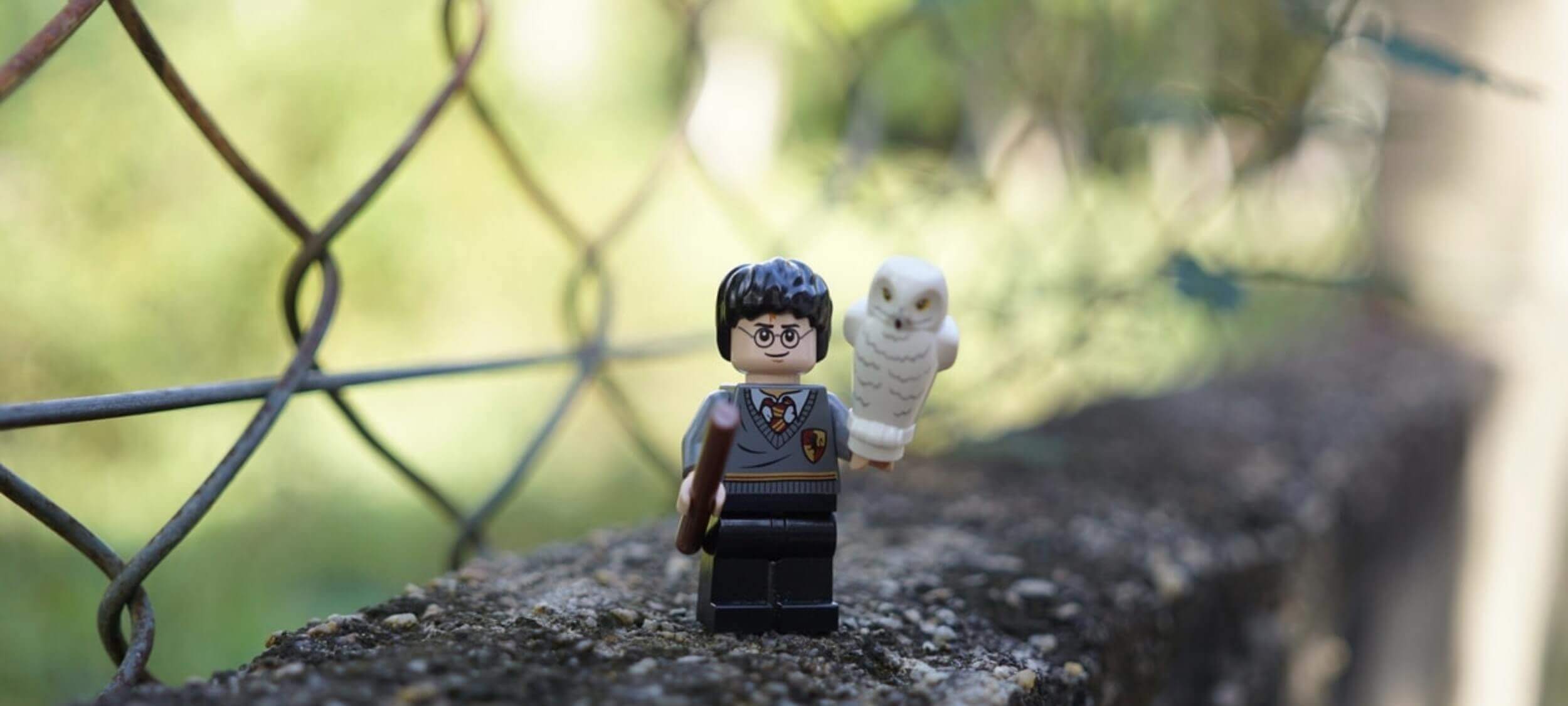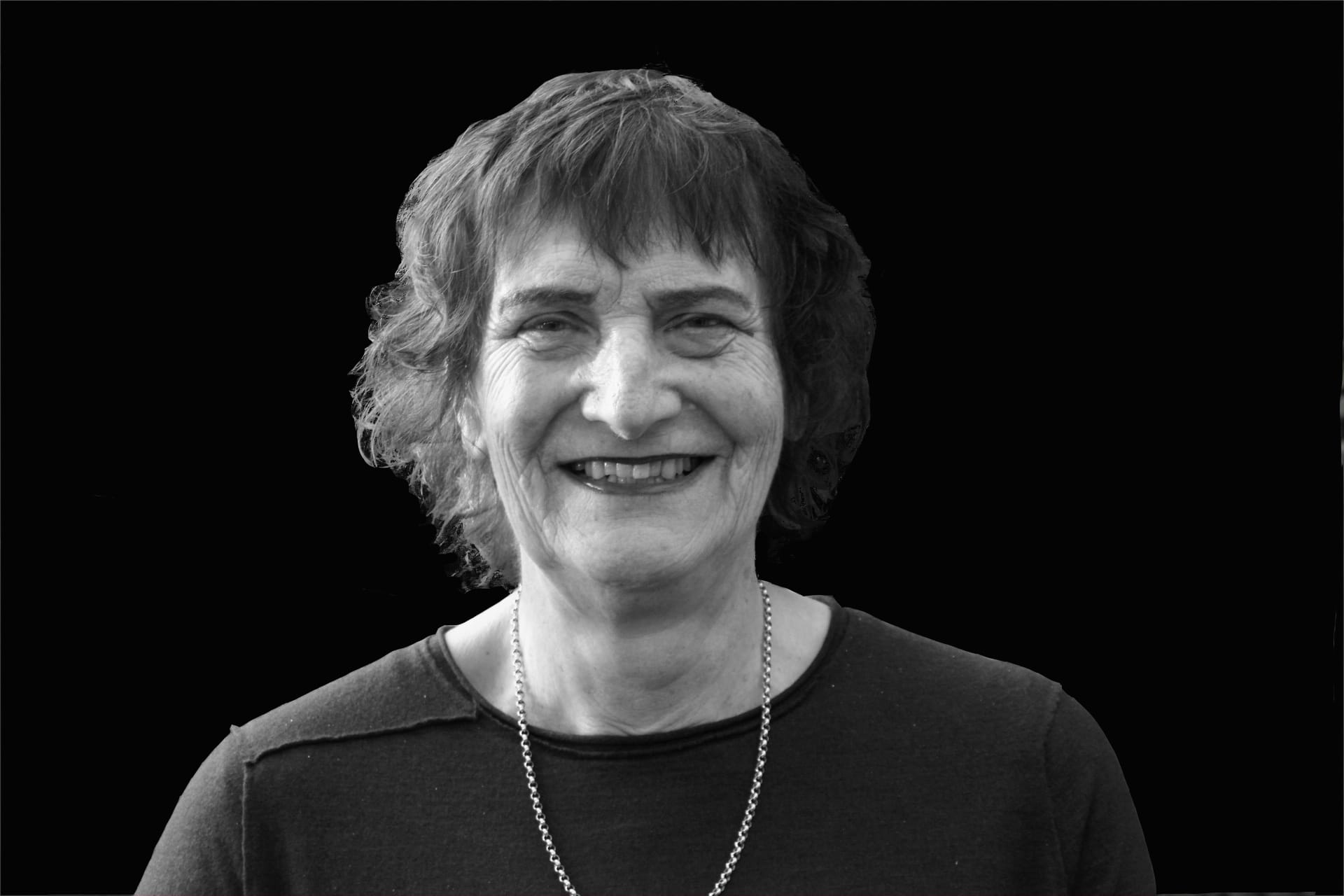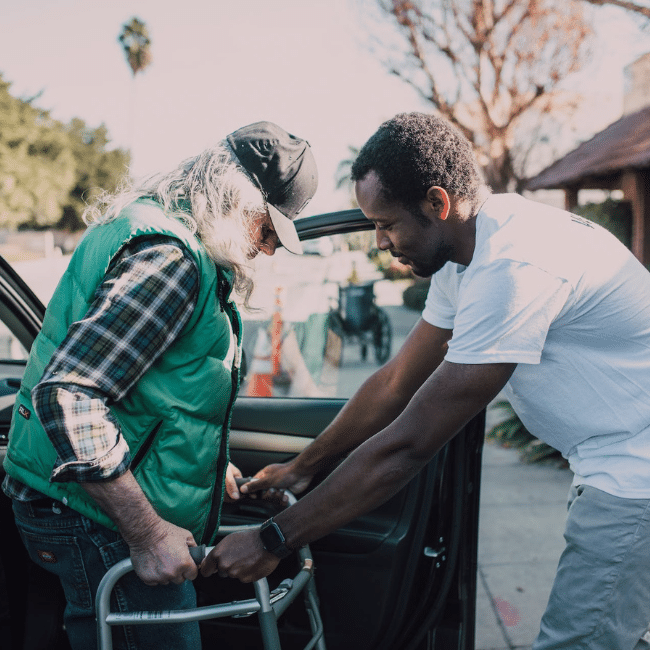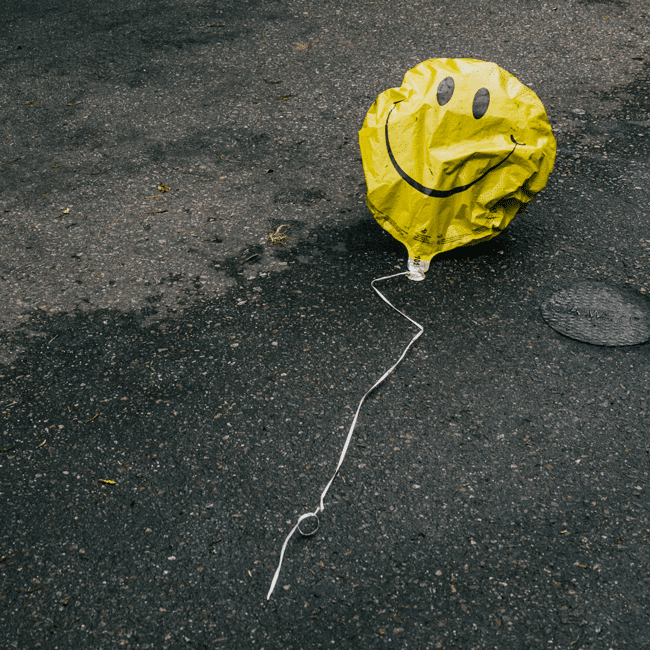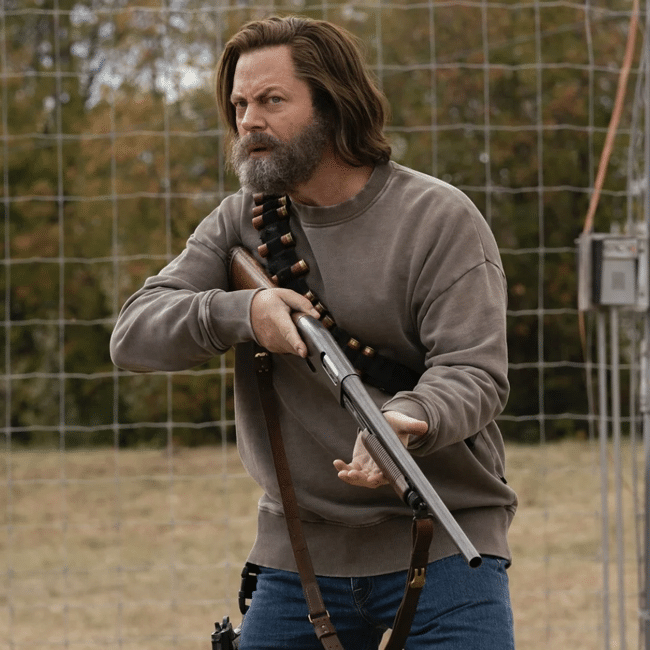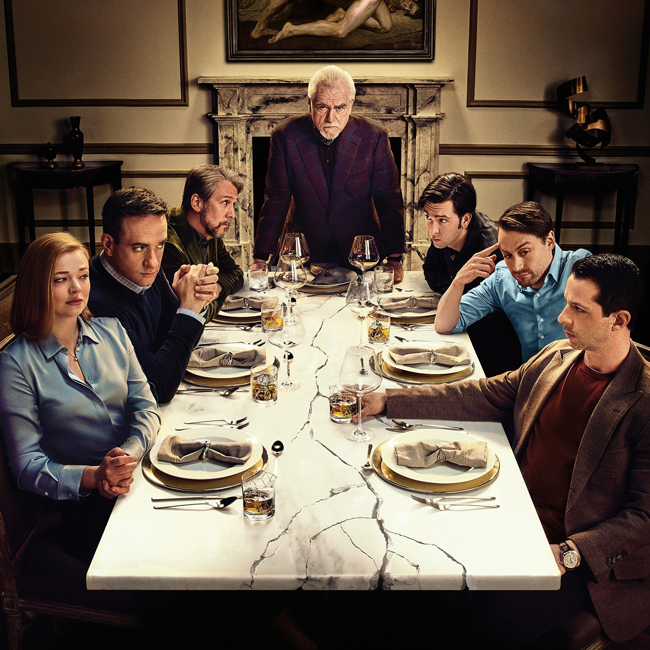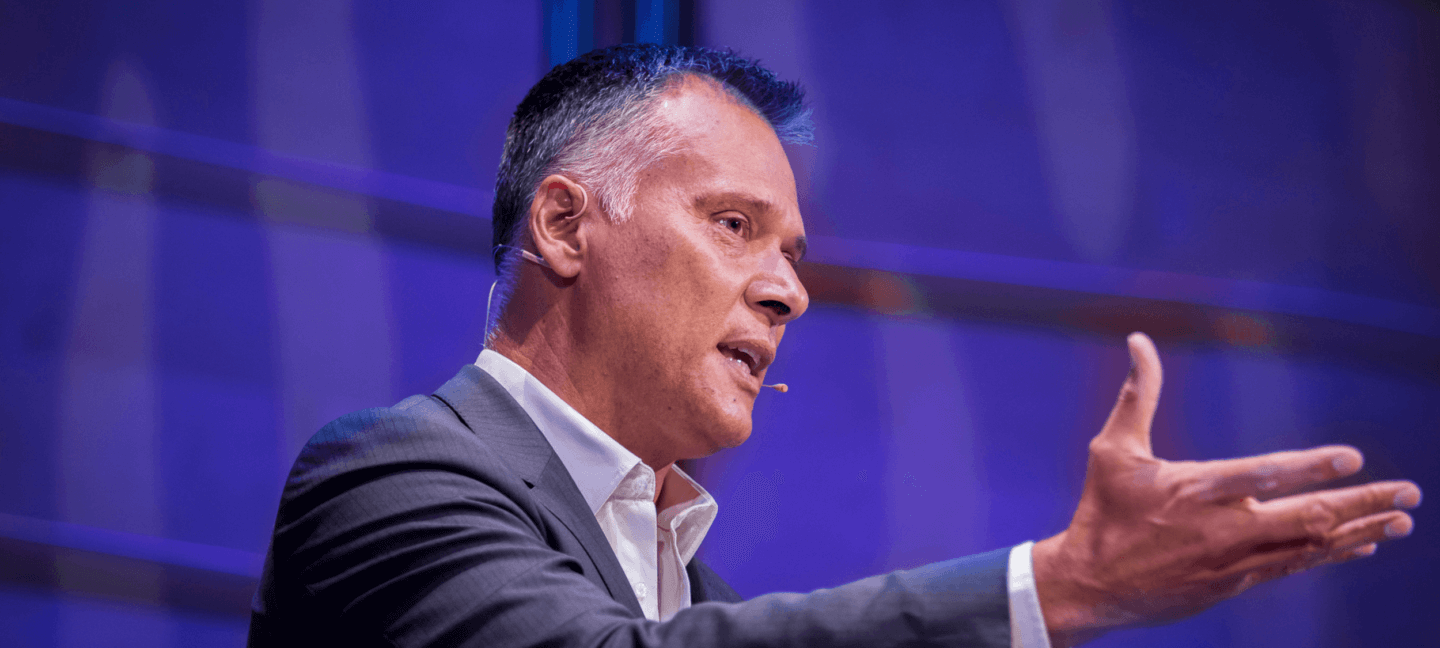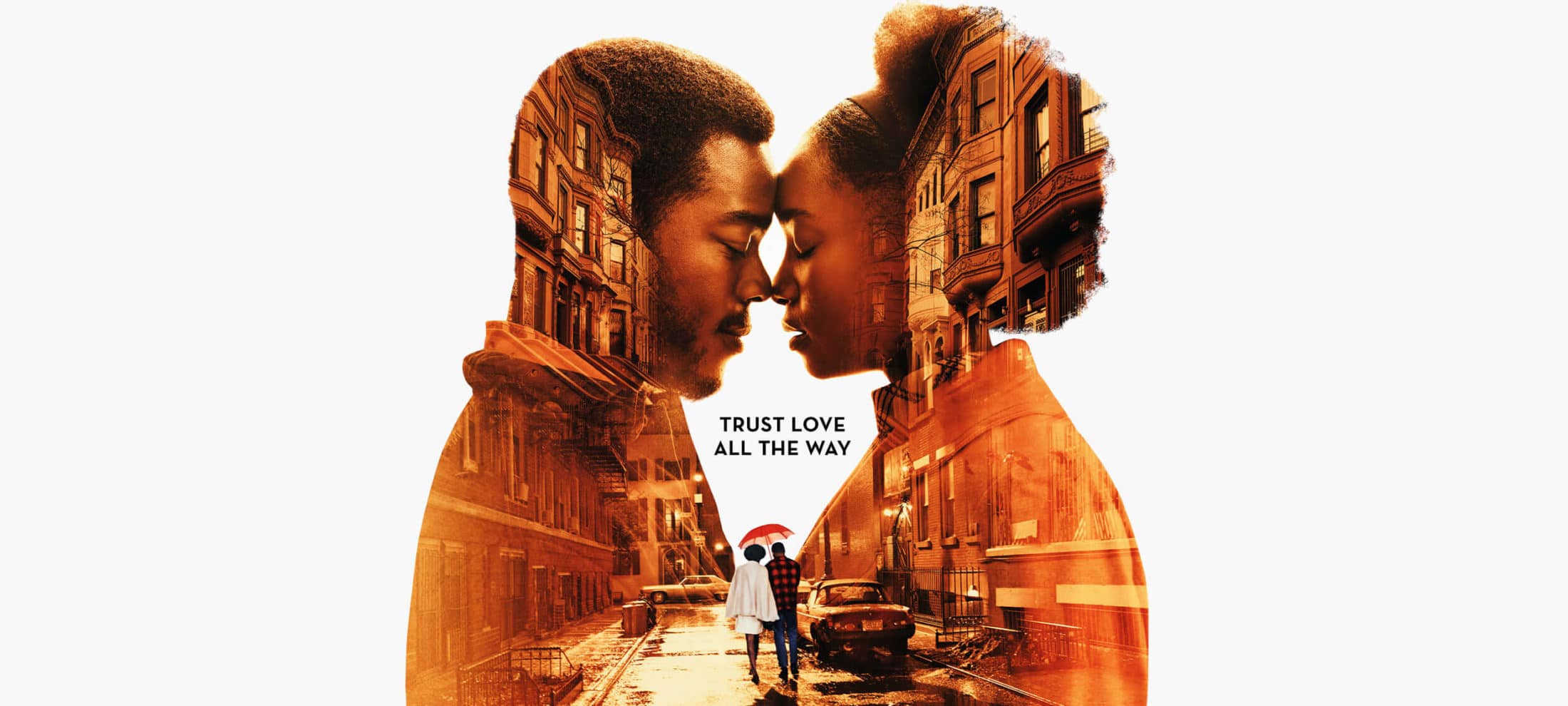Big Thinker: Audre Lorde
ArticlePOLITICS + HUMAN RIGHTS11/01/2024
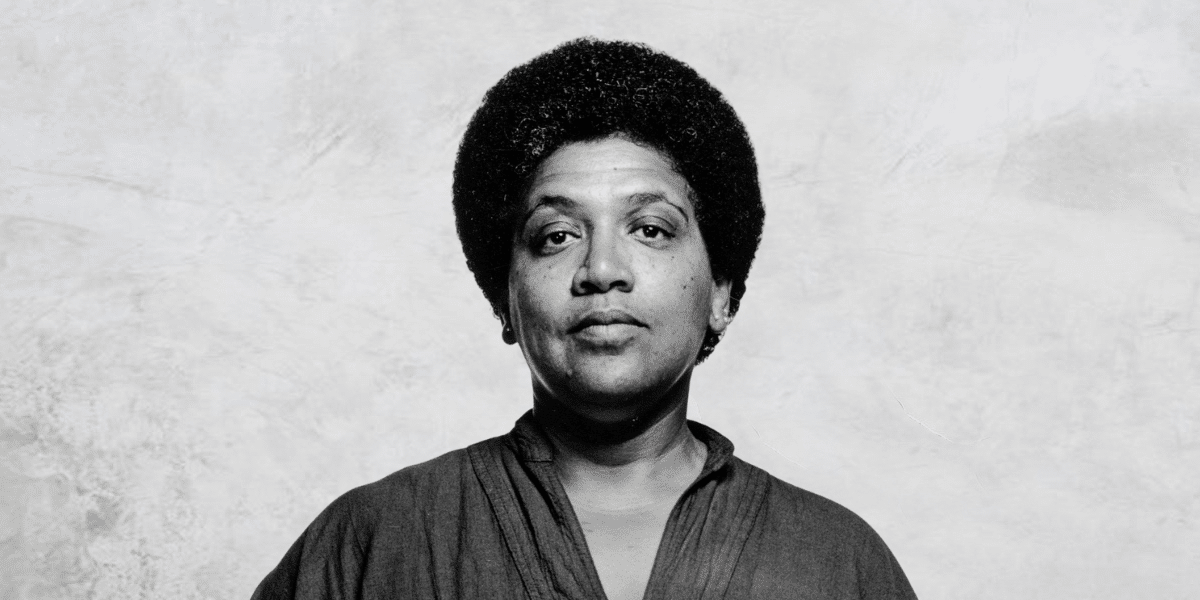
Big Thinker: Audre Lorde
Big thinkerPolitics + Human RightsSociety + Culture
BY The Ethics Centre 11 JAN 2024
Professionally a poet, professor and philosopher, Audre Lorde (1934-1992) also proudly carried the titles of intersectional feminist, civil rights activist, mother, socialist, “Black, lesbian [and] warrior.” She is also the woman behind the popular manifesto “the master’s tools will never dismantle the master’s house.”
Born Audrey Geraldine Lorde in New York City, to Frederic and Linda Belmar Lorde, on the 18th of February 1934, Lorde fell in love with poetry as a form of expression at a young age.
“I used to communicate through poetry,” she recalled in conversation with Claudia Tate for Black Women Writers at Work. “When I couldn’t find the poems to express the things I was feeling, that’s what started me writing poetry,” she said. Lorde was thirteen.
Alongside her education at Hunter High School in New York, and working on the school’s literary magazine, she published her first piece of literature in the 1951 April issue of Seventeen Magazine. She earned a Bachelor of Arts from Hunter College in 1959, preceding a master’s degree in library science in 1961 from Columbia University. Following that, Lorde worked as a librarian for public schools in New York City from 1961 to 1968, working her way to head librarian of Manhattan’s Town School. In 1980, Lorde and her friend, a fellow writer and activist, created a publishing house, ‘Kitchen Table: Women of Color Press.’ Throughout these years, Lorde was prolific and wrote some of her most recognised volumes of poetry. A full discography of her work can be found at the end of this article.
Authorship and legacy
Expression of self and personal philosophy through literature became a cornerstone of Audre Lorde’s life and one of her greatest contributions to the discourse on discrimination and equality today.
A proud feminist, Lorde’s authorship strived to offer an authentic depiction of the female experience; the good, the bad and the complex. She felt academic discourse on feminism was white and heterosexual centric, lacking consideration of the lived realities of Black and queer women. Thus, she put the stories of these women at the centre of her literature.
Lorde’s philosophy focussed particularly on intersectional discrimination and academic discourse’s inability to accommodate it. She revered differences amongst humans, arguing true equality can only be achieved through celebrating rather than homogenising our different identities.
Third Wave Feminism
Lorde was a prominent member of the women’s and LGBTQIA+ rights movements during the second wave of feminism. As a woman with many of her own labels, Lorde used her lived experience and literary expertise to shine a light on the experience and voices of other women with multiple signifiers. She implored society to confront racist feminism, the nuances of the Black female experience and the cognitive dissonance between educating yourself on feminism whilst not bearing witness to the experiences of all women, – particularly women of colour whose intellectual labour and contributions to such academia have been so routinely overlooked. Thus, helping kickstart the third wave of feminism, also spearheaded by another big thinker, Kimberle Crenshaw.
Through her words, Lorde aimed to acknowledge and capture the pain as well as the joy she felt as an openly queer Black woman. This bare-all intent and celebration of individuality is particularly felt in her work, The Cancer Journals and her subsequent public encouragement of other breast cancer survivors to wear their mastectomies on their chest, rather than accept prosthesis purely for aesthetic motivations. “It is that very difference that I wish to affirm… I lived it, I survived it, and wish to share that strength with other women.”
Philosophy on difference
Lorde was an advocate for difference amongst human beings. For her, difference was the key to eradicating discrimination and moving forward in unity. As we constantly reevaluate what it means to be human, what we hold dear and the ethical pillars we lean on to guide us, Lorde philosophised that it was vital we harness rather than fear that which separates us from our friends, peers and enemies. Rather than homogenising humanity, the future of equality relies on our ability to relate across differences. Finding community is not about conforming, it is about accepting. It must be an act of opening up, not of shutting down.
Lorde examined difference particularly through an intersectional feminist lens. Identifying and subverting the conditioning of women to view their differences as causes for separation and self-judgement.
What we need first, however, is courage. To have our beliefs and perspectives stretched and challenged as we begin the journey of embracing that which makes us different from those around us.
Intersectionality
Lorde was acutely aware of and vocal about the pressure on marginalised people to divide their identities in order to fight for recognition of their discrimination. Academia was constructed to examine, debate and interrogate ways of being. At the time, it was established by white men, and thus contributions to this school of thought were limited to the lived realities and perspectives of these men. As a result, the notion of a human norm came about, and this norm was white, male, heterosexual and often, but not always, wealthy, educated and upper class. Every deviation from this ideal was considered a handicap and treated as such.
In her speech at the New York University Institute for the Humanities, where she debuted her admonishment: “the master’s tools will never dismantle the master’s house,” Lorde cautioned people of colour and other marginalised demographics against the pressure to conform to the limited criteria of ‘acceptable’ laid out by discrimination discourse in white academia, in order to have their needs met. She argued fighting for equality within a system with the notion of a human ideal will only lead to disappointment. True and deeply entrenched equality can only happen through an entire paradigm shift; the unravelling of a human norm in the first place.

Ethics in your inbox.
Get the latest inspiration, intelligence, events & more.
By signing up you agree to our privacy policy
You might be interested in…
Opinion + Analysis
Politics + Human Rights
Is constitutional change what Australia’s First People need?
Explainer
Politics + Human Rights, Relationships
Ethics Explainer: Critical Race Theory
Opinion + Analysis
Politics + Human Rights
Lies corrupt democracy
Opinion + Analysis
Politics + Human Rights
Australia Day and #changethedate – a tale of two truths
BY The Ethics Centre
The Ethics Centre is a not-for-profit organisation developing innovative programs, services and experiences, designed to bring ethics to the centre of professional and personal life.
Why certain things shouldn’t be “owned”
ArticlePOLITICS + HUMAN RIGHTS10/01/2024

Why certain things shouldn’t be “owned”
Opinion + AnalysisPolitics + Human Rights
BY Nick Jarvis 10 JAN 2024
What can we truly “own”, and are there things in this era of late capitalism where our current, long-evolved legal and philosophical definitions of ownership are inadequate?
The audience at The Ethics Centre’s ‘Ethics of Ownership’ event was posed these questions, and others, with stimuli scenes by guest actor Sheridan Harbridge.

In Common Law, ownership entails the “right to possess a thing, to use it to the exclusion of others, to alter it, to profit from it, and to dispose of it,” Ethics Centre Executive Director Simon Longstaff said.
This current definition derives from John Locke’s labour theory of property, that when someone mixes their labour with commonly held or natural “God-given” land it can become their private property.
However, Locke qualifies, this applies “…at least where there is enough, and as good, left in common for others.” Meaning a person should not be able to own more than they can use without it going to waste.
A series of quandaries posed to the audience at ‘The Ethics of Ownership’ produced some interesting and instructive dissonance in the way we think about ownership. The story of a woman who took apples rotting on the ground from an orchard to feed her starving family, knowing she’d been denied the right to take them, produced an interesting take on qualifying factors.

Most of the audience thought she had committed theft, but the majority thought she shouldn’t be prosecuted, because the orchard owner had acted unethically in denying his unused apples to the starving family. Locke would argue that the man had forfeited his natural right to the apples as his property as they were going to waste, and that people have a legitimate claim.
17th and 18th Century philosophers Hobbes and Hume held that there “could be no natural right of property ownership, rather the various rights of ownership were created by the state (or some less formal community) and were, thus, a human creation,” and the state or community can change these rules as the imperatives and circumstances change.
These Enlightenment-era theories were established in early imperial/colonial Capitalism, as defined by Karl Marx, amid agricultural and industrialising societies. Marx argued that individuals should own all productive resources in common. This is because when one class (the proletariat) produces goods with their labour, on behalf of an ownership class that derives benefit, the proletariat becomes alienated from those goods and their labour when they cannot afford to own them.
Curiously, Ayn Rand, although a fervid Capitalist, also argued that, “The man who produces while others dispose of his product, is a slave”. Rand, however, argued this as a case for individual rights above all others.
When it comes to ownership over our own selves, a slim majority thought you should be able to sell your own organs, because “your body is the only thing that’s 100% yours,” as one audience member put it. Significantly more of the audience thought you shouldn’t be allowed to sell yourself into slavery, which links back to our (now) deeply held belief that you cannot own another person because, as Emmanuel Kant put it, no person can ever become a means to someone else’s end.
Locke did not extend common property rights to slaves, arguing that slaves cannot lay claim to property as they’re not considered part of civil society, “having forfeited their lives and, with it, their liberties, and lost their estates, and being in the state of slavery, not capable of any property.”
The audience’s answers show how much we value our personal autonomy over our bodies, and gave rise to the fact that, in Common Law countries, you don’t in fact own any part of your body. The “No Property Rule” prohibits individuals from claiming ownership over their own bodies or genetic material.
Interestingly, this law arose as a response to slavery entrenched by various judicial decrees over the centuries, including Shanley v Harvey (1763), where the judge decreed that, “[a]s soon as a man sets foot on English ground he is free.” With ownership of another human eventually ruled indefensible by the courts, and reasons given ranging from “from ecclesiastical law to grave robbing”, a person’s ownership of their own body was abolished as well.
Ownership comes with responsibilities as well as rights – you have the right to exclude others from using your property, but you also have a responsibility to protect that property from improper use by others, for instance, keeping weapons and dangerous animals contained from improper use. You also have a responsibility to use that thing, Locke argued, to maximise its productivity for the good of all society.
The audience consensus was that “owning” things that are of public value, such as artworks and the environment, should not confer the right to do what you like with your property. I would extend this concept to intellectual property such as patents for life saving, or life-improving, medications that private companies or individuals are currently allowed to own and may charge what they like for.
The argument of one audience member was that “things of shared value, while they can be owned in a legal sense, ownership should be more of a role of caretaking,” or akin to borrowing, where you’re duty-bound to return it in the same state you received it in so others can use it after. In the case of inheritance, this ethical obligation to caretake for the thing in possession would pass to whoever inherits it.
Does this mean that our sense of ownership, as defined by law precedent derived from Locke, is no longer fit for purpose, in an era of alienation from labour and destructive, extractive use of natural resources? Does a mining or forestry company have the right to own and ruin a piece of land because they have expended effort to harvest its natural resources, but not maintained or improved it?
When applied to things of common value to everyone on the planet, such as the environment, access to culturally valuable works of art, access to sun, water, shelter, sustenance, or medicine, our legally established definitions of ownership start to look inadequate.
Locke’s definition also didn’t account for indigenous concepts of ownership. For Indigenous Australians, the land owns the people and every aspect of their lives – spiritual, material, social, cultural – is connected to it and its maintenance. You cannot own property and derive maximum benefit from it to its detriment when you’re morally and culturally bound to be a caretaker or custodian for that property.
Perhaps our whole definition of private ownership needs a contemporary rethink when it comes to these objects, resources and ideas of inherent common value. We don’t need to abolish private ownership, but we do need to re-establish rights and responsibilities of use within the concept of the “common good”.

Ethics in your inbox.
Get the latest inspiration, intelligence, events & more.
By signing up you agree to our privacy policy
You might be interested in…
Opinion + Analysis
Politics + Human Rights
Israel or Palestine: Do you have to pick a side?
Opinion + Analysis
Politics + Human Rights
Do states have a right to pre-emptive self-defence?
Opinion + Analysis
Politics + Human Rights
If you don’t like politicians appealing to voters’ more base emotions, there is something you can do about it
Explainer
Society + Culture, Politics + Human Rights
Thought experiment: The original position
BY Nick Jarvis
Nick Jarvis is a Sydney-based editor and writer on the arts, culture and technology. He's written for The Ethics Centre, the Walkleys, Sydney Festival, Sydney Film Festival, Vice and many Australian arts organisations. He currently works for Sydney Festival.
Stoicism on Tiktok promises happiness – but the ancient philosophers who came up with it had something very different in mind
ArticleSOCIETY + CULTURE20/12/2023
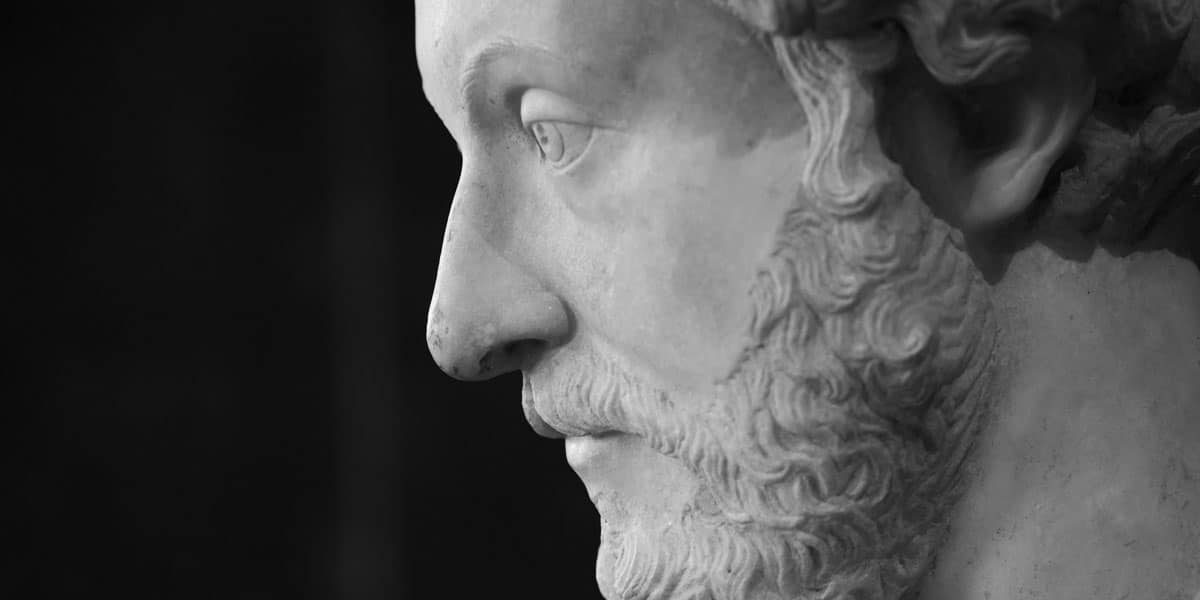
Stoicism on Tiktok promises happiness – but the ancient philosophers who came up with it had something very different in mind
Opinion + AnalysisSociety + CultureRelationships
BY Matthew Duncombe 20 DEC 2023
I don’t know about you, but my TikTok is full of influencers telling me I should be a Stoic. You might know the term “stoic” as a person who goes through hardship while maintaining a steely and calm disposition, and never complains. However, a stoic is also someone who prescribes to the philosophical school of Stoicism.
Stoicism became popular in ancient Rome. Stoic TikTok exclusively draws on Roman Stoicism, mainly Epictetus (a formerly enslaved person), Seneca (a fabulously wealthy and self-aggrandizing advisor to the emperor Nero), and Marcus Aurelius (who was himself a Roman emperor).
But the school goes back much further to ancient Athens, where Stoicism was founded around 300BCE by Zeno of Citium. After Zeno, Stoicism flourished in Athens, especially under Chrysippus, known as the second founder of Stoicism.
On TikTok, you’ll see people saying that Stoicism is a great way to lead a happy and productive life. I’m a professional philosopher who specialises in ancient Greek philosophy – and it’s great, if somewhat surprising, to see how popular Stoicism has become over the last ten years. But as a philosopher, I’m not a Stoic – and Stoic TikTok gets quite a lot wrong about this way of thinking.
Despite what you see on TikTok, Stoicism was a dry, technical, ivory tower philosophy. Its ideas around happiness and productivity diverge quite a bit from what modern people consider these to be. Traditionally, it was divided into three branches: ethics, physics, and logic – much of which TikTok’s Stoic preachers don’t get quite right.
Logic
Distinctively, the Stoics emphasised logic, comparing it to the shell of an egg or the bones and sinews of a body, because logic protects (like a shell), supports (like bones) and connects (like sinews) our beliefs and knowledge. In fact, the Stoics developed a systematic logical theory which, through various historical twists and turns, inspired 20th-century logic and hence theoretical computer science.
The Stoics took logic seriously because it was needed for knowledge. For the Stoics, to know something – including how to live well – was to understand it so totally that you could defend your view against any degree of argumentative scrutiny, against any opponent. In other words, they used logic to win a sort of philosophical Hunger Games.
But Stoic TikTok isn’t really interested in a deep, rich and logically defensible knowledge of the world and our place in it. In so far as Stoic TikTok is interested in knowledge, it implies that you can get knowledge by simply reading quotations of famous Stoics or practising certain mental exercises, such as meditating on death.
Physics
Stoic TikTok also ignores Stoic physics – the principles that Stoics used to explain the natural processes in the universe. For the Stoics, everything that exists, including your soul and God, is a body. God, in fact, is “mixed with matter, pervading all of it and so shaping it, structuring it and making it into the world”, as the critic Alexander of Aphrodisias told us in the early third century.
The Stoics argued that, since God is rational and active, this makes everything that exists in the world rational and organised for the best. You are part of this rational universe so, if bad things happen to you, it would be irrational to complain – as if your foot complained about getting muddy.
This idea of a rational universe is popular with Stoic TikTok, and can be seen in posts telling followers to “love their fate”. They suggest that true happiness comes from accepting anything that happens.
But does loving your fate in a truly Stoic sense achieve the sort of productivity and happiness most people want? I think not.
Ethics
Which brings us to Stoic ethics. While Stoic TikTok promises productivity and happiness, it’s unlikely you’ll achieve the levels of productivity and happiness you actually desire if you go by what Stoics believed these to be.
Happiness, for a Stoic, was a matter of having virtues and lacking vices. Everything else – including health, wealth and status – were “indifferents”, because they made no difference to your virtue, and so to your happiness.
So, even if the self-helpy advice of Stoic TikTok could make you more productive, being more productive won’t make you be happier, according to Stoic philosophy. At best, you’ll acquire health, wealth or status, but those things are indifferent to your happiness.
There is, of course, something hypocritical about Seneca arguing that wealth is indifferent while being one of the richest men in Rome; or Marcus Aurelius saying that power is indifferent while being emperor.
It is rational to prefer to be healthy rather than ill, rich rather than poor, powerful rather than oppressed. In fact, there was nuanced ancient debate in which the Stoics tried to find a middle way between a view where health, money and power are simply good, and a view where they are totally irrelevant to living a good life.
Chrysippus tried to steer this course by saying that while health, wealth and power are indifferent, how you use them is not. If I use power intemperately or wealth to indulge my most disgusting appetites, I will not be virtuous or happy. Personally, I don’t think the Stoic philosophy will ultimately solve this problem of whether health, wealth and power are totally indifferent to happiness, but it is an open question.
I’ve not touched here on the more sinister aspects of Stoicism on the internet, discussed in Donna Zuckerberg’s Not All Dead White Men. Rather, I’ve tried to point out what Stoic TikTok misses, because I hope people dive deeper into Stoic philosophy. A great place to start is Tad Brennan’s The Stoic Life.
Stoicism is a rich, fascinating and sophisticated philosophical tradition. But, if you’re looking for happiness and productivity in more modern terms, the Stoics might not have the answer.
This article was originally published by The Conversation. Image by Bradley Weber.

Ethics in your inbox.
Get the latest inspiration, intelligence, events & more.
By signing up you agree to our privacy policy
You might be interested in…
Big thinker
Politics + Human Rights, Relationships
Big Thinker: Michel Foucault
Opinion + Analysis
Health + Wellbeing, Relationships
Banning euthanasia is an attack on human dignity
Opinion + Analysis
Relationships, Society + Culture
What Harry Potter teaches you about ethics
Opinion + Analysis
Health + Wellbeing, Relationships
The Ethics of Online Dating
BY Matthew Duncombe
I am an Associate Professor, University of Nottingham, working mainly on Plato, Aristotle, the Stoics and ancient sceptics. I often write about ancient logical and metaphysical ideas, but I have a broad range of philosophical interests, including ethics, games, fate, paradoxes and mental health, especially ancient perspectives on these.
What does love look like? The genocidal “romance” of Killers of the Flower Moon
ArticleRelationships19/12/2023
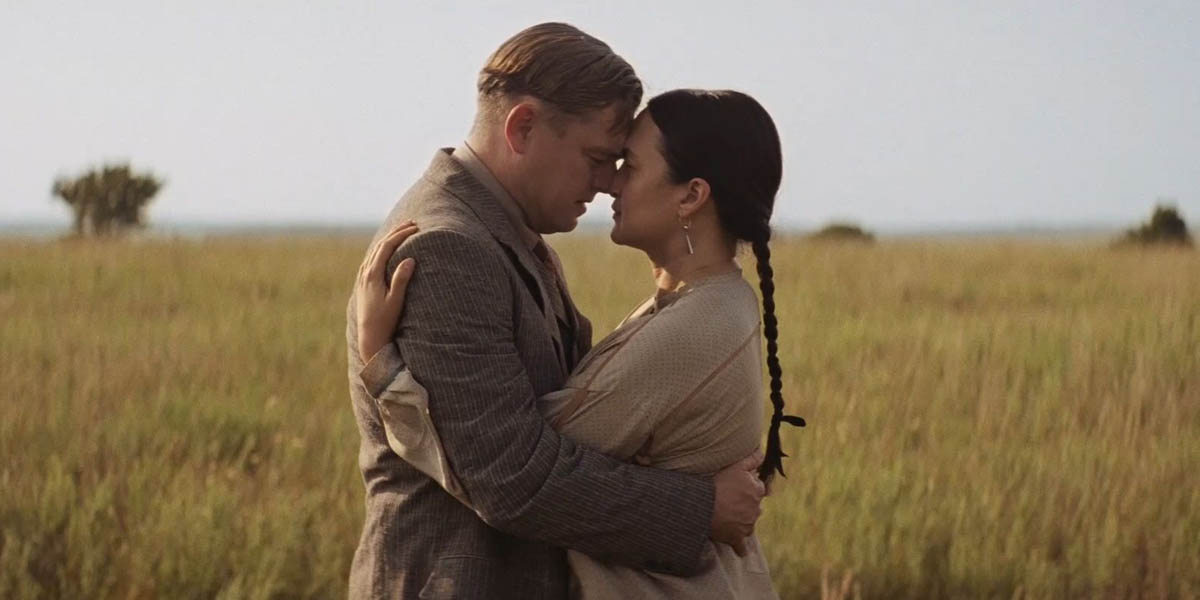
What does love look like? The genocidal “romance” of Killers of the Flower Moon
Opinion + AnalysisRelationshipsSociety + Culture
BY Joseph Earp 19 DEC 2023
Killers of the Flower Moon, the newest film by Martin Scorsese, starts with a terrible, distorted version of the romantic “meet-cute.”
Ernest Burkhart (played with leery relish by Leonardo DiCaprio) romances Molly Kyle (Lily Gladstone). He’s a driver; she needs to get around the place. Throwing knowing looks over his shoulder as he spins his wheel, he flirts with her, and though she is initially suspicious, eventually she succumbs to his interests. A romance is born.
It is the classic “boy meets girl” story – or at least, it would be, if we didn’t already know the real reason driving Ernest’s romantic designs. He has been put up to this meeting by “King” Hale (Robert DeNiro), his calculating and murderous Uncle, who is seeking to redirect the fortunes of the Osage tribe of which Molly is a member. Though he projects an image as a pillar of the community, King is the centre of a string of murders – and Ernest is recruited as his budding killer-to-be, with Molly as a target.
The tension at the heart of Killers of the Flower Moon lies in Ernest’s dual role as Molly’s wife and her poisoner. Though Ernest is the film’s main character, we are given little in the way of his interior life. Instead, we understand the man through his actions, which are, increasingly, in direct conflict. Ernest acts like he loves Molly, and the children they have together; he weeps when one dies. He also injects her daily with a poison. When, in the film’s climax, the pair are reunited, he almost collapses into her arms. Nobody outright asks Ernest if he loves Molly, but they ask similar questions, and he responds in the full-throated affirmative. She is his wife, and at least some of the time, he treats her as such.
So, do we want to accept this kind of attachment – murderous, openly destructive – as a form of love? Or would doing so fundamentally taint the concept?
Love as a blinding force
The ethical value of love has long been debated by philosophers. Plato and Socrates both saw love as a fundamentally morally valuable emotion – one which expands our sense of the world’s beauty and possibility, and motivates us to do better. Indeed, according to this view of love, romance is the foundation of ethical action.
It’s a way of teaching us of the importance of other people, an escape from selfish solipsism that draws out into the world.
But love – as the mere existence of the term “crime of passion” proves – does not always lead us down virtuous paths. Any romance also has the capability of reducing ethical scope, not expanding it. Arthur Schopenhauer, the notorious pessimist, saw love as an essential “illusion” that consumes people utterly. He described it as little more than the desire to procreate, over which the fiction of romance gets written. On this view, love creates a lopsided sense of ethical value, transforming the world down to a single point – the love object. This in turn breeds jealousy; possession; and, Schopenhauer said, frequently madness.
What makes Ernest’s “love” distinct, however, is that he doesn’t seem to experience the usual ethical pitfalls of romance. He’s not jealous of Molly. He doesn’t act as though he wants to possess her – at least not in the normal sense. Nor does he, in the traditional sense, go mad. Instead he acts to destroy her, an essentially self-negating series of actions where the one he prizes the most is also the one he seeks to snuff out.

Love in and of itself
Perhaps ironically, given his reputation as a cold, difficult and abstract philosopher, it is Immanuel Kant who provides the solution to the puzzle of Ernest’s love. Taken as a whole, Kant is paradoxical on the nature of love – he once dismissed it as a “feeling”, and wrote that “a duty to love is an absurdity.”
But, importantly, Kant did believe we should love one another. And more than that, this was a duty to love another “in and of itself.” One of Kant’s key ethical positions is the idea that using another – treating them like a mere “means” – is wrong. Instead, he believed that we should view other people as an “ends”. Kant believed that value did not exist outside human beings – that we create value – and that we should view all others, including those we love, as the source of value in the world. We respect and love others, he thought, because we see them not for what they can do for us, but for what they are; what they value and what they care about.
Ernest does not do this. Both of the ways that he treats Molly – doting on her and poisoning her – are for his own benefit. He has turned her into a mere object, a machine for love and money. She gives him children, and her death will give him riches and success. When he falls into her arms and embraces her, he is embracing not the whole Molly – the full, rich person, a source of value in the world – but only the parts of her that help him.
In this way, Ernest’s broken form of love serves as a warning to the rest of us.
When we say we love someone, we should direct that emotion to all who they are. Not choosing the parts we like, or the parts that service us. But the difficult parts; the awkward parts; the fears and the pains as well as the highs.
A lover’s eyes should always be open, after all.

Ethics in your inbox.
Get the latest inspiration, intelligence, events & more.
By signing up you agree to our privacy policy
You might be interested in…
Big thinker
Politics + Human Rights, Relationships
Big Thinker: Aristotle
Opinion + Analysis
Relationships
Is masculinity fragile? On the whole, no. But things do change.
WATCH
Relationships
What is ethics?
Opinion + Analysis
Health + Wellbeing, Relationships
Pop Culture and the Limits of Social Engineering
BY Joseph Earp
Joseph Earp is a poet, journalist and philosophy student. He is currently undertaking his PhD at the University of Sydney, studying the work of David Hume.
Ethics Explainer: Altruism
ArticleRelationships15/12/2023
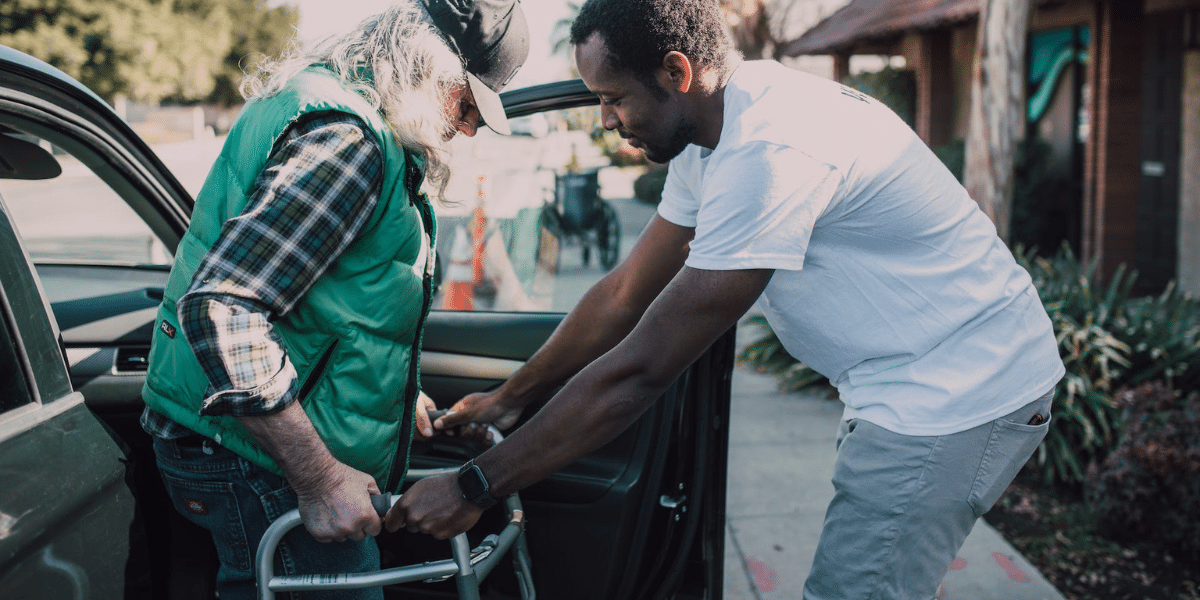
Amelia notices her elderly neighbour struggling with their shopping and lends them a hand. Mo decides to start volunteering for a local animal shelter after seeing a ‘help wanted’ ad. Alexis has been donating blood twice a year since they heard it was in such short supply.
These are all examples, of behaviours that put the well-being of others first – otherwise known as altruism.
Altruism is a principle and practice that concerns the motivation and desire to positively affect another being for their own sake. Amelia’s act is altruistic because she wishes to alleviate some suffering from her neighbour, Mo’s because he wishes to do the same for the animals and shelter workers, and Alexis’ because they wish to do the same to dozens of strangers.
Crucially, motivation is what is key in altruism.
If Alexis only donates blood because they really want the free food, then they’re not acting altruistically. Even though the blood is still being donated, even though lives are still being saved, even though the act itself is still good. If their motivation comes from self-interest alone, then the act lacks the other-directedness or selflessness of altruism. Likewise, if Mo’s motivation actually comes from wanting to look good to his partner, or if Amelia’s motivation comes from wanting to be put in her neighbour’s will, their actions are no longer altruistic.
This is because altruism is characterised as the opposite of selfishness. Rather than prioritising themself, the altruist will be concerned with the well-being of others. However, actions do remain altruistic even if there are mixed motives.
Consider Amelia again. She might truly care for her elderly neighbour. Maybe it’s even a relative or a good family friend. Nevertheless, part of her motivation for helping might also be the potential to gain an inheritance. While this self-interest seems at odds with altruism, so long as her altruistic motive (genuine care and compassion) also remains then the act can still be considered altruistic, though it is sometimes referred to as “weak” altruism.
Altruism can (and should) also be understood separately from self-sacrifice. Altruism needn’t be self-sacrificial, though it is often thought of in that way. Altruistic behaviours can often involve little or no effort and still benefit others, like someone giving away their concert ticket because they can no longer attend.
How much is enough?
There is a general idea that everyone should be altruistic in some ways at some times; though it’s unclear to what extent this is a moral responsibility.
Aristotle, in his discussions of eudaimonia, speaks of loving others for their own sake. So, it could be argued that in pursuit of eudaimonia, we have a responsibility to be altruistic at least to the extent that we embody the virtues of care and compassion.
Another more common idea is the Golden Rule: treat others as you would like to be treated. Although this maxim, or variations of it, is often related to Christianity, it actually dates at least as far back as Ancient Egypt and has arisen in countless different societies and cultures throughout history. While there is a hint of self-interest in the reciprocity, the Golden Rule ultimately encourages us to be altruistic by appealing to empathy.
We can find this kind of reasoning in other everyday examples as well. If someone gives up their seat for a pregnant person on a train, it’s likely that they’re being altruistic. Part of their reasoning might be similar to the Golden Rule: if they were pregnant, they’d want someone to give up a seat for them to rest.
Common altruistic acts often occur because, consciously or unconsciously, we empathise with the position of others.
Effective Altruism
So far, we have been describing altruism and some other concepts that steer us toward it. However, here is an ethical theory that has many strong things to say about our altruistic obligations and that is consequentialism (concern for the outcomes of our actions).
Given that, consequentialism can lead us to arguments that altruism is a moral obligation in many circumstances, especially when the actions are of no or little cost to us, since the outcomes are inherently positive.
For example, Australian philosopher Peter Singer has written extensively on our ethical obligations to donate to charity. He argues that most people should help others because most people are in a position where they can do a lot for significantly less fortunate people with relatively little effort. This might look different for different people – it could be donating clothes, giving to charity, volunteering, signing petitions. Whatever it is, the type of help isn’t necessarily demanding (donating clothes) and can be proportional (donating relative to your income).
One philosophical and social movement that heavily emphasises this consequentialist outlook is effective altruism, co-founded by Singer, and philosophers Toby Ord and Will MacAskill.
The effective altruist’s argument is that it’s not good enough just to be altruistic; we must also make efforts to ensure that our good deeds are as impactful as possible through evidence-based research and reasoning.
Stemming from the empirical foundation, this movement takes a seemingly radical stance on impartiality and the extent of our ethical obligations to help others. Much of this reasoning mirrors a principle outlined by Singer in his 1972 article, “Famine, Affluence and Morality”:
“If it is in our power to prevent something very bad from happening, without thereby sacrificing anything morally significant, we ought, morally, to do it.”
This seems like a reasonable statement to many people, but effective altruists argue that what follows from it is much more than our day-to-day incidental kindness. What is morally required of us is much stronger, given most people’s relative position to the world’s worst-off. For example, Toby Ord uses this kind of reasoning to encourage people to commit to donating at least 10% of their income to charity through his organisation “Giving What We Can”.
Effective altruists generally also encourage prioritising the interests of future generations and other sentient beings, like non-human animals, as well as emphasising the need to prioritise charity in efficient ways, which often means donating to causes that seem distant or removed from the individual’s own life.
While reasons for and extent of altruistic behaviour can vary, ethics tells us that it’s something we should be concerned with. Whether you’re a Platonist who values kindness, or a consequentialist who cares about the greater good, ethics encourages us to think about the role of altruism in our lives and consider when and how we can help others.

BY The Ethics Centre
The Ethics Centre is a not-for-profit organisation developing innovative programs, services and experiences, designed to bring ethics to the centre of professional and personal life.
Ethics in your inbox.
Get the latest inspiration, intelligence, events & more.
By signing up you agree to our privacy policy
You might be interested in…
Big thinker
Relationships
Big Thinker: Jelaluddin Rumi
Opinion + Analysis
Politics + Human Rights, Relationships
Do Australia’s adoption policies act in the best interests of children?
Opinion + Analysis
Relationships, Society + Culture
Inside The Mind Of FODI Festival Director Danielle Harvey
Opinion + Analysis
Politics + Human Rights, Relationships
Is it wrong to care about Ukraine more than other wars?
The niceness trap: Why you mustn’t be too nice
ArticleRelationships15/12/2023
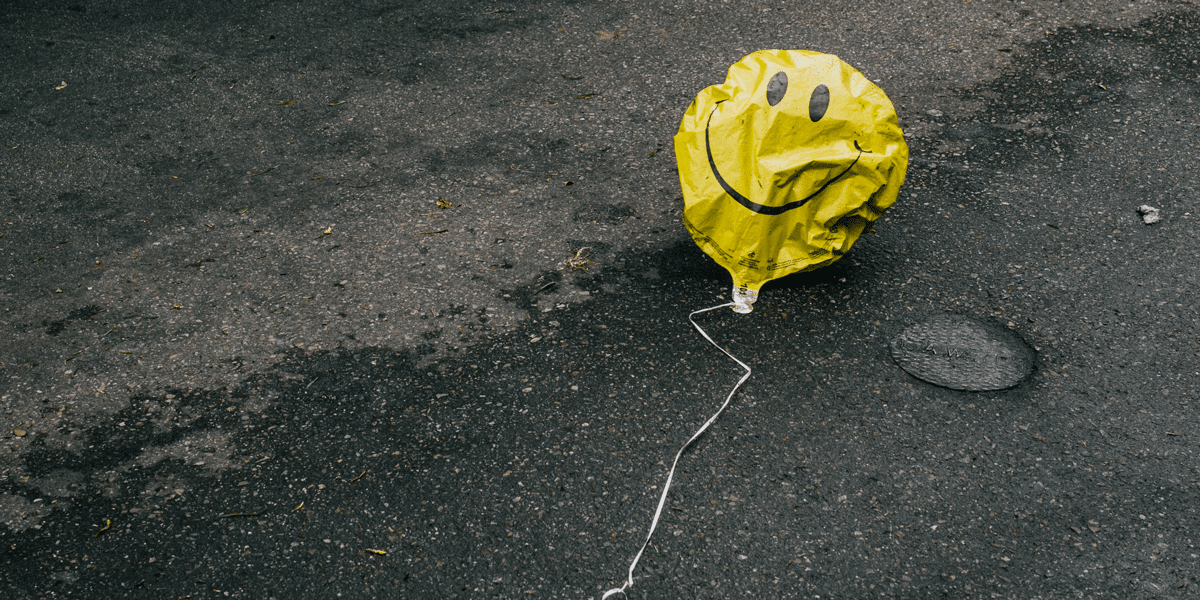
The niceness trap: Why you mustn’t be too nice
Opinion + AnalysisRelationships
BY Dr Tim Dean 15 DEC 2023
Can we be too nice? On the surface, it seems absurd to say we should put a cap on how nice we should be. But if we overdo it, we can end up shirking our other ethical obligations.
Skim the headlines or scroll through social media and you’d be forgiven for concluding that there’s a serious deficit of niceness in the world today, and if only people were a little more kind, compassionate and giving, then the world would be a much better place.
Imagine a nicer world where other drivers consistently backed off to let you merge lanes, or shrugged off your occasional failure to check a blind spot with a smile and a wave. Imagine a workplace where everybody lifted each other up, and covered for you when you needed a break. Imagine a world with more Dumbledores and fewer Snapes. Imagine a world without Karens.
Most philosophers have sought such a world by urging us to cultivate niceness. Confucious promoted the foundational virtue of ren, often translated as benevolence or humanity. Aristotle argued that the path to flourishing lay in cultivating virtues like magnanimity, generosity and patience. Christian scholars promoted temperance was a cardinal virtue. In more modern times, Peter Singer has said we ought to take the compassion we feel towards close family and friends and expand it to cover all sentient creatures, human and animal. In short: be nice.
But there’s also a catch with niceness. If we take it to excess, we can leave ourselves vulnerable to exploitation, fail in our ethical duties and even undermine the very moral foundations of our community.
This is because a world where everyone is fully trusting and selflessly giving is a ripe hunting ground for those who are willing to abuse that trust and get ahead by stepping on the backs of others.
The paradox of niceness
This phenomenon can be modelled using the popular game theoretic thought experiment, the Prisoner’s Dilemma. Imagine a situation where two bank robbers are arrested and held in separate cells, unable to communicate with each other. The police have no other witnesses, so they’re relying on the suspects’ testimony to prove the case against them. If both suspects confess, they’ll both receive a five-year sentence. If they both remain silent, then the police will only be able to charge them with a minor offense carrying a one-year sentence. However, if one of them testifies while their partner remains silent, then the dobber will be set free while their partner will go to jail for 10 years.
On the surface, it seems sensible for them both to remain silent. That would be the “nice” thing to do because it benefits them both. But there’s a twist. If one of the suspects believes that their partner will remain silent, then they have an opportunity to testify against them and get off scott-free, while their partner is thrown in the slammer. They also know that if they remain silent, then their partner will have an opportunity to dob them in. As a result, the most reasonable thing for either of them to do is dob on the other, which means they both end up with a harsher penalty than if they’d both cooperated and stayed silent.
The Prisoner’s Dilemma models a fundamental truth when it comes to social interaction: if we we’re nice, we all benefit, but there will always be a temptation to exploit the charity of others to get ahead, and in doing so, we can end up destroying the possibility of cooperation altogether.
There have been whole virtual tournaments using the Prisoner’s Dilemma to see what kinds of strategies – whether “nice” or “nasty” – will yield the best results for the agents playing the game. And it’s from these tournaments that another twist emerges.
In a single Prisoner’s Dilemma game, the nasty dobber has the upper hand, especially if their partner is nice. However, when the same agents play the game over and over, it turns out that it pays to be nice, because you’re likely to be punished in the next game if you’ve been nasty. When you add in some real-world flavour to the game, like making it so that agents can sometimes mistakenly defect when they meant to cooperate, it’s the nicer agents that come out on top.
But these simulations show that niceness has its limits. Those agents that are unconditionally nice tend to get exploited by nasty ones. However, those strategies that are conditionally nice, and that defect only to punish bad behaviour, do best of all.
Toxic niceness
Back in the real world, what this means is that it is possible to be too nice. If we’re unconditionally generous and forgiving, then we leave ourselves open to exploitation by people who will take advantage of our niceness.
It’s likely we all know someone who is a natural giver, someone whose empathy is overflowing and who goes out of their way to help everyone around them. These people are often much loved, but they can also be crushed under the weight of their own compassion, sometimes neglecting their own wellbeing, and it’s not uncommon for others to take advantage of their generosity.
Such unconditional niceness can also prevent us from punishing those who deserve it. You may have also worked for a manager who was overly forgiving, not only of minor transgressions, but also behaviour that was toxic or harmful to others. Punishment is inherently unpleasant, and the overly nice can be reluctant to mete it out, staying their hand while wrongdoers run amok. That not only undermines the moral community, but it makes it harder to hold people to account for their actions, preventing them from growing by learning from their mistakes.
Niceness is good. Be nice. But not so nice that you allow others to be nasty.

BY Dr Tim Dean
Dr Tim Dean is Philosopher in Residence at The Ethics Centre and author of How We Became Human: And Why We Need to Change.
Ethics in your inbox.
Get the latest inspiration, intelligence, events & more.
By signing up you agree to our privacy policy
You might be interested in…
Opinion + Analysis
Relationships, Society + Culture
Five dangerous ideas to ponder over the break
Opinion + Analysis
Relationships, Society + Culture
Bring back the anti-hero: The strange case of depiction and endorsement
Opinion + Analysis
Health + Wellbeing, Relationships
Ask me tell me: Why women think it’s ok to lie about contraception
Explainer
Politics + Human Rights, Relationships
Ethics Explainer: Gender
11 books, films and series on the ethics of wealth and power
ArticleSOCIETY + CULTURE07/12/2023
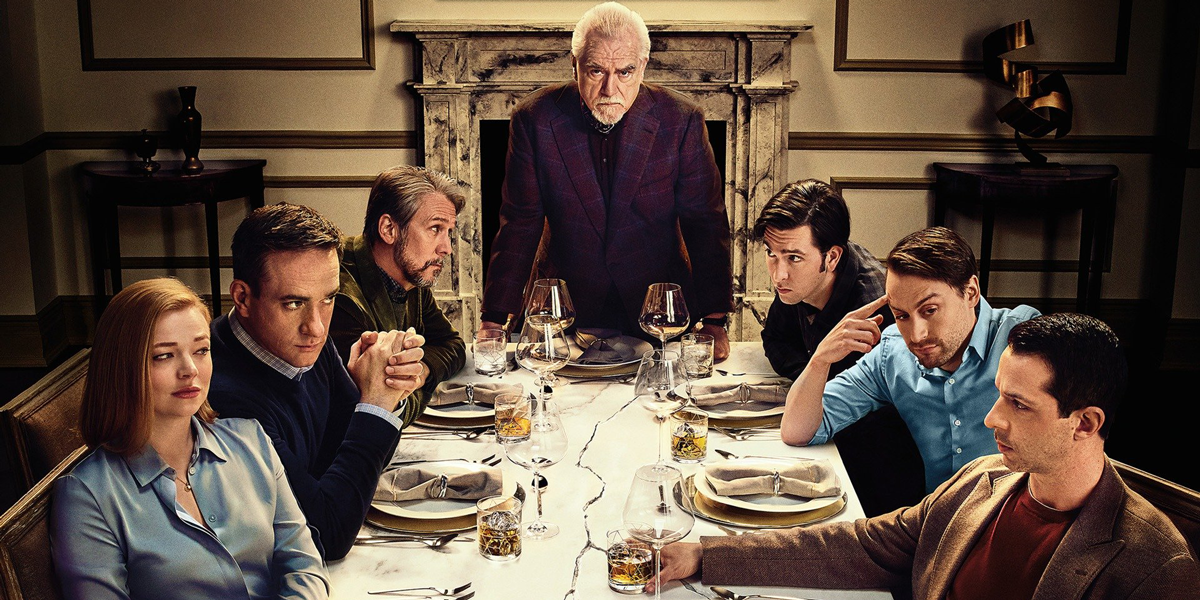
11 books, films and series on the ethics of wealth and power
Opinion + AnalysisSociety + Culture
BY The Ethics Centre 7 DEC 2023
They say power corrupts. And for good reason. Ethics is in constant tension with power. The more power or money someone has, the more they can get away with.
A central concern of money and power is how those who have it should be allowed to use it. And a central concern of the rest of us is how people with money and power in fact do use it.
Here are 11 books, films, tv shows and podcasts that consider the ethics of wealth and power:
Parasite

A Korean comedic thriller film about poverty, the contrast between the rich and poor and the injustice of inequality.
Succession

An American satirical comedy-drama series detailing a powerful global media and entertainment conglomerate. Run by The Roy family, the unexpected retirement of the company’s patriarch ignites a power struggle.
Animal farm – George Orwell
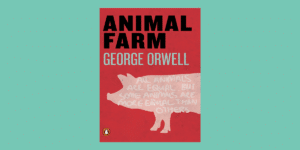
A satirical novel of a group of anthropomorphic farm animals who rebel against their human farmer, hoping to create a society where the animals can be equal, free, and happy.
Generation Less – Jennifer Rayner, FODI
 In her Festival of Dangerous Ideas 2016 talk, advocate and writer Jennifer Rayner asks why is the gap between older and younger Australians – in terms of work, wealth and wellbeing – growing wider? Is Australia cheating the young?
In her Festival of Dangerous Ideas 2016 talk, advocate and writer Jennifer Rayner asks why is the gap between older and younger Australians – in terms of work, wealth and wellbeing – growing wider? Is Australia cheating the young?
The Colonial Fantasy – Sarah Maddison
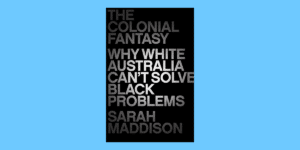
A call for a radical restructuring of the relationship between Aboriginal and Torres Strait Islander people and governments.
White Lotus

An American dark comedy-drama anthology series, which socially satires the various guests and employees of a resort, exploring what money and power will make you do.
The Deficit Myth – Stephanie Kelton
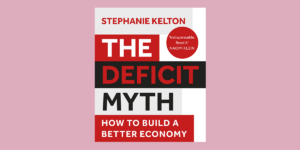
An exploration of modern monetary theory (MMT) which dramatically changes our understanding of how we can best deal with crucial issues ranging from poverty and inequality to creating jobs, expanding health care coverage, climate change, and building resilient infrastructure.
Squid game
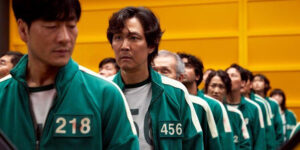
A Korean survival drama series where hundreds of cash-strapped contestants accept an invitation to compete in children’s games for a tempting prize, but the stakes are deadly.
Entitled: How Male Privilege Hurts Women – Kate Manne
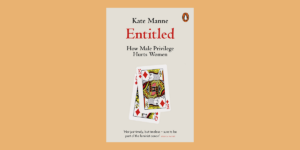
A vital exploration of gender politics from sex to admiration, bodily autonomy, knowledge, power and care. In this urgent intervention, philosopher Kate Manne offers a radical new framework for understanding misogyny.
The Lehman Trilogy – Stefano Massini
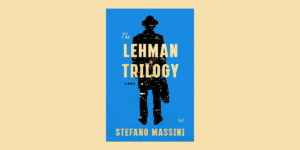
Originally a novel, and since adapted into a three-act play, The Lehman Trilogy tells the story of modern capitalism through the saga of the Lehman brothers’ bank and their descendants.
Life and Debt podcast
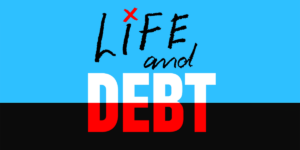
Produced by The Ethics Centre, Life & Debt is a podcast series that dives into debt, what role it has in our lives and how we can make better decisions about it.

Ethics in your inbox.
Get the latest inspiration, intelligence, events & more.
By signing up you agree to our privacy policy
You might be interested in…
Opinion + Analysis
Business + Leadership, Politics + Human Rights, Society + Culture
Drawing a line on corruption: Operation eclipse submission
Opinion + Analysis
Relationships, Society + Culture
A parade of vices: Which Succession horror story are you?
Opinion + Analysis
Society + Culture
Critical thinking in the digital age
Opinion + Analysis
Politics + Human Rights, Society + Culture
What comes after Stan Grant’s speech?
BY The Ethics Centre
The Ethics Centre is a not-for-profit organisation developing innovative programs, services and experiences, designed to bring ethics to the centre of professional and personal life.
A note on Anti-Semitism
ArticlePOLITICS + HUMAN RIGHTS30/11/2023

I was recently proud to join hundreds of others in signing an open letter condemning Anti-Semitism, Islamophobia and all other forms of discrimination.
The fact that such a letter needed to be written is deeply troubling. However, the world has been witness to the horrific consequences of remaining silent when the beast of race-based hatred begins to stir.
The great attraction of the statement I signed lay in its embrace of a positive principle that extends to every person – irrespective of their identity, conduct or circumstances. The principle of ‘respect for persons’ is the foundation upon which all human rights ultimately rest. It is an affirmation that every person has an irreducible, intrinsic dignity that cannot be reduced or forfeited. Although the rising incidence of Anti-Semitism may have prompted the statement, its concern extends to all who are at risk of harm.
Yet, what exactly is this harm? And how do we properly distinguish between vile acts of Anti-Semitism, on the one hand, and mere criticism on the other? For example, is holding Hamas accountable for the death of innocent non-combatants either ‘Anti-Palestinian’ or ‘Islamophobic? I think not. Nor is it Anti-Semitic to hold the State of Israel to account for acting in conformance with the laws of armed conflict. Both can be held accountable to the same standard without denying the intrinsic dignity of any individual or group.
Expressing sympathy for the plight of ordinary Palestinians, caught in the crossfire of an historically intractable dispute, does not amount to Anti-Semitism. Nor is it ‘genocidal’ to support the existence of the State of Israel (even while condemning many of the actions of its government).
Anti-Semitism is a very distinctive and potent form of evil. It denies the full and equal humanity of Jewish people – and endorses the destruction of their religion, culture, history and bodies. It has its own recognisable symbols – the Nazi Swastika, the ‘Heil Hitler’ salute (and associated symbology) – and revels in the despicable iconography of gas chambers and other elements in the apparatus of the Holocaust. It should be monitored and restrained with every ounce of energy and vigilance we can bring to bear. For where Anti-Semitism lives so there breeds all the other cesspools of hatred and despair.
So, it is unbearably sad when people loosely apply the label ‘Anti-Semitic’ on any occasion where Jewish people experience even the slightest form of annoyance, anger or discomfort.
We have been witness to an example of such ‘fast and loose’ language in the last couple of days. The ‘trigger’ incident was a decision by three actors to wear Palestinian Keffiyeh during the curtain call for Sydney Theatre Company’s opening performance of Chekhov’s The Seagull. The actors took this action without STC’s knowledge and without the support of the other cast members. Whether one agrees with the sentiment behind that statement is beside the point. In practice, they hijacked the company’s stage to make an entirely private, political statement. Now everyone else is left to pick up the pieces.
STC’s audience, supporters and donors are entitled to be annoyed by what occurred. So are the Board, management and members of the STC who had no knowledge of the planned stunt. Yet, nothing that was done on the night amounts to an act of Anti-Semitism. Naïve, perhaps. Unauthorised … certainly! Anti-Semitic … not at all.
To apply that label in the current circumstances is understandable when one considers the raw nerves and ancestral fears that are chafed in response to rising incidents of actual Anti-Semitism. However, over-reacting in this case (or others like it) brings about its own damage – especially when one part of our diverse, multicultural community bands together to boycott (‘cancel’) what it finds offensive. This approach did not help the cause of Christians and Muslims who have sought to censor those who offend or criticise. And I doubt that it will help the Jewish community. A diverse and vibrant community is made to seem monolithic in its outlook and concerns – separate from the whole.
I do not know if there are any Anti-Semites working at STC. However, I would be amazed if there were not at least some ardent critics of Israel (as there are amongst many Jewish people – the world over). But to be a critic of Israel is not the same as being an ‘Anti-Semite’. Of course, one can be both – but the distinction is vital and we all need to discern and apply the difference
Jewish people have every right to speak out when offended (a right we all enjoy). In doing so, they are often driven by fears grounded in millennia of persecution culminating in the Nazi’s ‘final solution’.
We should never be silent or indifferent in the face of Anti-Semitism. However, I fear that being fast and loose in labelling events and people as ‘Anti-Semitic’ risks undermining the significance of that terrible point in human history, which we must never do.
For the Holocaust stands for far more than the fate, alone, of the Jewish people. It is a potent warning of what horrors lurk within the human psyche and the power of that warning must never lose its place in humanity’s collective memory – for it threatens us all.

BY Simon Longstaff
After studying law in Sydney and teaching in Tasmania, Simon pursued postgraduate studies in philosophy as a Member of Magdalene College, Cambridge. In 1991, Simon commenced his work as the first Executive Director of The Ethics Centre. In 2013, he was made an officer of the Order of Australia (AO) for “distinguished service to the community through the promotion of ethical standards in governance and business, to improving corporate responsibility, and to philosophy.”
Ethics in your inbox.
Get the latest inspiration, intelligence, events & more.
By signing up you agree to our privacy policy
You might be interested in…
Opinion + Analysis
Business + Leadership, Politics + Human Rights
We are on the cusp of a brilliant future, only if we choose to embrace it
Opinion + Analysis
Business + Leadership, Politics + Human Rights
Who’s afraid of the strongman?
Opinion + Analysis
Politics + Human Rights
Why Anzac Day’s soft power is so important to social cohesion
Opinion + Analysis
Business + Leadership, Politics + Human Rights
Ask the ethicist: If Google paid more tax, would it have more media mates?
The ethics of workplace drinks, when we’re collectively drinking less
ArticleHEALTH + WELLBEING30/11/2023

The ethics of workplace drinks, when we’re collectively drinking less
Opinion + AnalysisHealth + WellbeingBusiness + Leadership
BY Nick Jarvis 30 NOV 2023
There is no denying that alcohol is inextricably linked to Australia’s social DNA. Going to the pub with mates, drinking at a BBQ or picnic, at dinner parties, house parties, birthdays or gigs – all of these link “having a drink” with “having a good time” in our national consciousness.
A Roy Morgan research study in 2022 found that the majority (67.9%) of Australians had consumed alcohol in the last month, with the average Australian consuming nearly 10 litres of pure alcohol a year (2017-18 study).
In fact, a 2021 survey named Australians the heaviest binge drinkers in the world, finding we would binge an average of 27 times a year, almost double the global average – although overall alcohol consumption rates have been dropping since the early 2000s.
When it comes to work, alcohol is closely tied to socialising – Friday after work drinks, celebratory drinks to recognise a goal achieved, Christmas parties, launches, networking events; all of them invariably involve alcohol in some capacity. Some people might even say they can’t stomach a work social event unless alcohol is involved.
In some cultures binging is even built into work culture – in China, heavy drinking after a deal has been sealed is a time-honoured ritual, where everyone involved has to let their guard down and form a “moral contract” bound by heavy drinking together. In Japan, nomikai, or drinking parties, are an integral part of workplace culture for socialising and bonding, and everyone is expected to take part.
Alcohol certainly has its benefits as a social lubricant at work events, allowing people to bond together faster, but it also has its dark side – harassment after the lowering of inhibitions, saying something inappropriate to a colleague, potentially embarrassing yourself in front of your team or clients, even assault can follow heavy drinking with work mates.
Having work social rituals based around the consumption of alcohol is also exclusionary for those who choose not to drink, whether because of physical or mental health reasons, religious or cultural reasons, or because they’ve quit or just don’t want to. People may feel pressured to drink in work social spaces, to be social, to network and keep up with the team. A 2019 survey by the UK’s Drinkaware found that more than half of workers surveyed would like there to be less pressure to drink at work events.
And people are increasingly opting out of alcohol-fuelled leisure time, a trend led by the more risk-aware Gen Z. The 2019 National Drug Strategy Household Survey found that, in 2001, the people most likely to have consumed alcohol daily, used illicit drugs or smoked cigarettes were in their 20s. By 2019, that had changed to people in their 40s and 50s. The survey also found the number of people in their 20s who don’t drink at all increased from 9% to 22% between 2001 and 2019.
The drinks industry has adapted, with sales of zero alcohol substitutes rising over 100% in the two years to 2022, but in many cases our workplaces have not.
As more people are becoming ‘sober curious’, or trying to reduce their alcohol intake, it can make it awkward in the workplace when you decline an “al-desko” beer or to troop along to Friday after work drinks. Missing out on socialising with your colleagues can also be a barrier to making closer connections and friendships.
So what responsibility do workplaces have to their employees to offer alcohol free options for socialising, while also respecting the rights and choices of employees who want to drink responsibly?
Employers are mandated ethically and legally to provide safe, inclusive workplaces, and this should include respecting people’s decision to either drink alcohol or not drink alcohol and still be able to participate socially with their workmates and colleagues.
Rather than banning alcohol at work, providing zero alcohol drink options and alcohol-free bonding activities are an easy way employers can foster an inclusive environment, while respecting individual choice.
Just as we’ve seen the “smokers huddle” outside office buildings dwindle to near invisibility in the past ten years, I predict that we’ll soon see a marked increase in the availability of non-alcoholic options at work events and alternative socialising options that don’t come with any pressure, latent or otherwise, to imbibe. Which can only be a good thing for our livers and work-related hangxiety.

BY Nick Jarvis
Nick Jarvis is a Sydney-based editor and writer on the arts, culture and technology. He's written for The Ethics Centre, the Walkleys, Sydney Festival, Sydney Film Festival, Vice and many Australian arts organisations. He currently works for Sydney Festival.
Ethics in your inbox.
Get the latest inspiration, intelligence, events & more.
By signing up you agree to our privacy policy
You might be interested in…
Opinion + Analysis
Health + Wellbeing, Relationships
Why your new year’s resolution needs military ethics
Opinion + Analysis
Health + Wellbeing, Relationships
Rationing life: COVID-19 triage and end of life care
Opinion + Analysis
Health + Wellbeing
Maggie Beer: Good food can drive better aged care
Opinion + Analysis
Health + Wellbeing, Relationships
You are more than your job
On saying “sorry” most readily, when we least need to
ArticleRelationships23/11/2023

On saying “sorry” most readily, when we least need to
Opinion + AnalysisRelationships
BY Emma Wilkins 23 NOV 2023
One of the first things I learned when travelling in Europe, knowing only English, was to prioritise learning the word “sorry” when preparing to enter a new country.
There’s nothing wrong with learning “hello”, “thank you” and “please”, “I am…” and “where’s the nearest…”, but if you’re going to learn one word by heart, that’s the one I’d recommend. If you get yourself in trouble, it will likely be the word you need the most.
I speak from experience. Picture a nineteen-year-old washing her hands in the fountain at the foot of The Spanish Steps. Unbeknownst to her, the police have just rebuked some fellow tourists for cooling their sweaty feet in the waters of this national treasure—and told the watching crowd to heed their warning, show respect.
When their whistles blew at me and I was asked to show my passport, I didn’t have the words to explain that I’d just been to the loo and had been unable to find a handle for the tap. This was before sensors became commonplace; perhaps there was a pedal, but I hadn’t thought to look. Instead, I’d opened the door (with difficulty—I’d already covered my hands in pink slimy soap) and headed for the next available water source.
I had my reasons, but I didn’t have the words to explain why I’d done what I’d done, and until some friends explained later, I couldn’t fully understand why what I’d done had been so very wrong.
I could say Lo siento, and did, repeatedly.
I was reminded of this incident when reflecting on the ways in which we use the word “sorry” in daily life.
Sometimes we’re not apologising at all—we’re expressing sympathy to a bereaved friend, or being polite to a stranger. The bereavement “sorry” might translate to: “I wish you didn’t have to go through this”, or “I really feel for you”. The polite “sorry” to a stranger might translate to “excuse me”, or “I excuse you”. It might not be “performative” at all; we use it as a statement, nothing more. Or we’ll say “sorry I’m late” when we’re not sorry, but are late. If we really are sorry we’re late; our eyes, our tone, must do the work.
At other times, we apologise when we needn’t; we say “sorry” if we burst into tears when we are “supposed” to be keeping it together, or if we’ve had to ask for help when we’d hoped to solve a problem on our own.
In the workplace, if we’ve been asked to do something we haven’t been trained to do, and need to take up a manager’s time to find out how, we might apologise when really, we’re just doing our job, and asking them to do theirs.
In the context of close friendship, pouring out our worries, or asking for help, or advice, or both, isn’t something to apologise for, it’s (in part) what friendship is for. I know this, yet I find myself behaving otherwise. Just the other day I said “sorry” to a friend while crying on the phone, even though when friends do this to me I tell them off. Being trusted in this way honours a person more than it puts them out. When you love someone, you want to help; real “sorry” territory is more likely to be shutting a loved one out, than letting them in.
This is because “real sorry territory” is using the word in the deepest sense of the word; it’s apologising for hurting someone. It’s not using the word to escape consequence, it’s using the word to express heartfelt regret for causing real harm and, rather than making excuses, choosing to take responsibility.
It can be easy to say “sorry” when we don’t really mean it—when we’re being polite, when we’re going through a motion, avoiding punishment. It’s easy to say it, even mean it, when we see we’ve made a dumb mistake: Lo siento! Lo siento! It can roll right off the tongue.
In the case of the Fontana della Barcaccia, I’m pretty sure my excuses would have only caused further offence. Looking back, I’m glad I couldn’t say another word. But that sorry didn’t cost me, it helped me.
It’s using the word to admit—to ourselves as much as to somebody else—that we’ve not only caused offence, but ongoing hurt, and to ask for undeserved forgiveness, that’s hard. Even if we haven’t done wrong technically, we might have had a chance to help, and turned away. Using “sorry” to express true regret—to “repent”—could be the rarest use of “sorry” there is.
The rarest and, when it’s sincere, when it changes how we think and act, the most powerful. A word that can mean little can mean much; can be the difference between making excuses, or facing the truth; between a wound that keeps on causing pain, and one that, finally, begins to heal.

BY Emma Wilkins
Emma Wilkins is a journalist and freelance writer with a particular interest in exploring meaning and value through the lenses of literature and life. You can find her at: https://emmahwilkins.com/
Ethics in your inbox.
Get the latest inspiration, intelligence, events & more.
By signing up you agree to our privacy policy
You might be interested in…
Opinion + Analysis
Relationships
Why learning to be a good friend matters
Opinion + Analysis
Relationships
What I now know about the ethics of fucking up
Opinion + Analysis
Politics + Human Rights, Relationships, Society + Culture
Film Review: If Beale Street Could Talk
Explainer
Relationships
